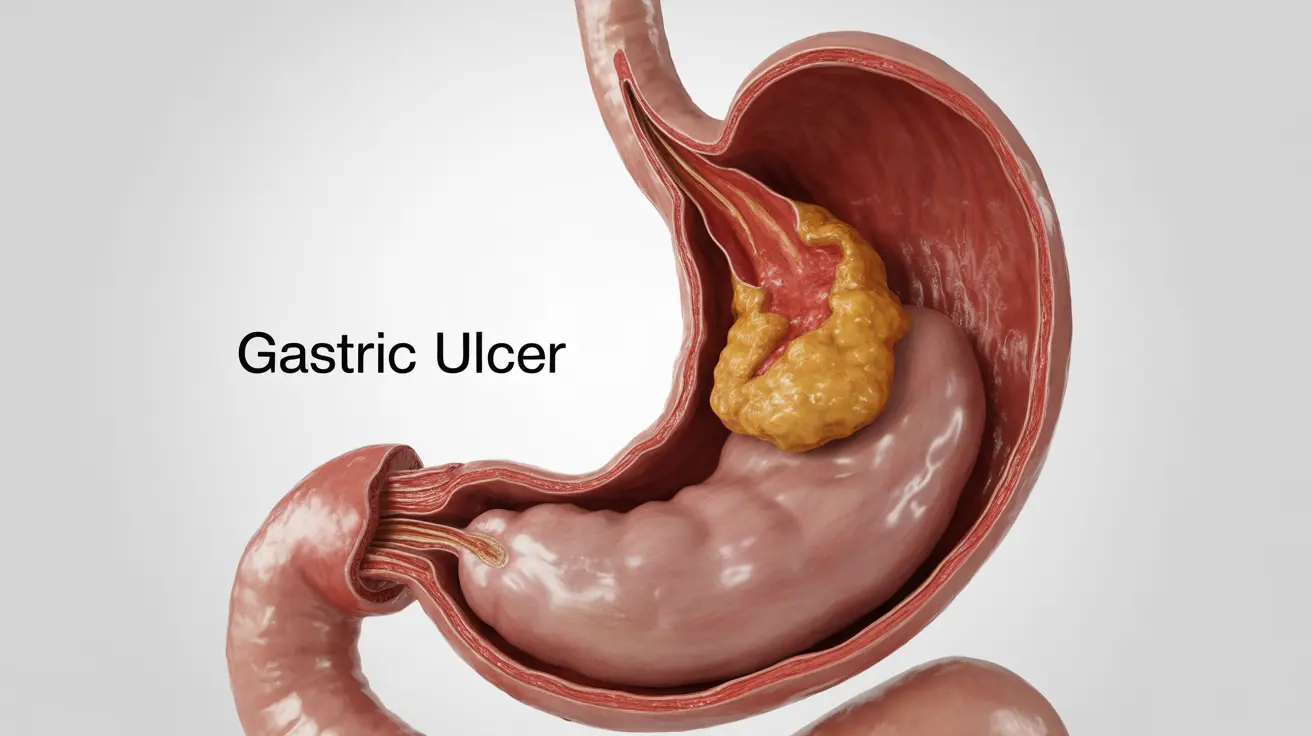Gastric ulcers, also known as stomach ulcers, are painful sores that develop in the stomach lining. These ulcers can cause significant discomfort and, if left untreated, may lead to serious complications. Understanding the signs, causes, and treatment options is crucial for managing this condition effectively.
While gastric ulcers are common, affecting millions of people worldwide, they are highly treatable when properly diagnosed. This comprehensive guide will help you understand everything you need to know about gastric ulcers, from recognizing early symptoms to exploring various treatment approaches.
Key Symptoms of Gastric Ulcers
The symptoms of gastric ulcers can vary in intensity and may develop gradually over time. Common signs include:
- Burning or gnawing pain in the upper abdomen
- Feeling full quickly during meals
- Bloating and belching
- Nausea or vomiting
- Loss of appetite
- Unexplained weight loss
These symptoms often worsen when the stomach is empty and may temporarily improve after eating or taking antacids. However, the relief is typically short-lived.
Understanding the Causes
H. pylori Infection
Helicobacter pylori (H. pylori) bacteria are responsible for the majority of gastric ulcers. These bacteria weaken the protective mucus layer of the stomach, making it more susceptible to damage from digestive acids.
NSAIDs and Other Risk Factors
Regular use of non-steroidal anti-inflammatory drugs (NSAIDs) like aspirin and ibuprofen can also lead to gastric ulcers. Other risk factors include:
- Excessive alcohol consumption
- Smoking
- Chronic stress
- Family history of ulcers
- Advanced age
Diagnostic Process
Healthcare providers use several methods to diagnose gastric ulcers accurately:
- Upper endoscopy
- H. pylori testing (breath test, blood test, or stool test)
- X-rays with contrast material
- Comprehensive medical history review
Treatment Approaches
Medication Options
Treatment typically involves a combination of medications, including:
- Proton pump inhibitors (PPIs)
- Antibiotics (if H. pylori is present)
- H2 blockers
- Antacids for symptom relief
Lifestyle Modifications
Supporting medical treatment with lifestyle changes can improve outcomes:
- Avoiding trigger foods
- Eating smaller, more frequent meals
- Limiting alcohol intake
- Quitting smoking
- Stress management techniques
Prevention Strategies
Taking proactive steps can help prevent gastric ulcers:
- Using alternatives to NSAIDs when possible
- Taking NSAIDs with food if necessary
- Regular hand washing to prevent H. pylori infection
- Maintaining a balanced diet
- Managing stress effectively
Frequently Asked Questions
What are the most common symptoms of a gastric ulcer and how can I recognize them?
The most distinctive symptom is a burning or gnawing pain in the upper abdomen, particularly between meals or at night. Other common signs include bloating, early satiety, nausea, and loss of appetite. If you experience persistent stomach pain lasting more than a week, seek medical attention.
What causes gastric ulcers and how does Helicobacter pylori infection contribute to them?
H. pylori bacteria are responsible for most gastric ulcers. These bacteria colonize the stomach lining, weakening its protective barrier and making it vulnerable to damage from stomach acid. Regular NSAID use is another major cause, accounting for many non-H. pylori cases.
How is a gastric ulcer diagnosed and what tests should I expect from my doctor?
Diagnosis typically involves an upper endoscopy to visualize the ulcer directly, along with tests for H. pylori infection. Your doctor may perform breath tests, blood tests, or stool tests. They will also review your medical history and current medications.
What are the main treatment options for gastric ulcers and how effective are they?
Treatment success rates are high when following prescribed protocols. The main approaches include acid-suppressing medications (PPIs or H2 blockers), antibiotics for H. pylori infection, and protective medications. Most ulcers heal within 4-8 weeks of starting treatment.
How can I prevent gastric ulcers or reduce the risk of developing them, especially if I take NSAIDs regularly?
If you require regular NSAID use, take them with food and consider using the lowest effective dose. Your doctor might prescribe protective medications like PPIs. Other prevention strategies include avoiding smoking, limiting alcohol, managing stress, and maintaining good hygiene to prevent H. pylori infection.




